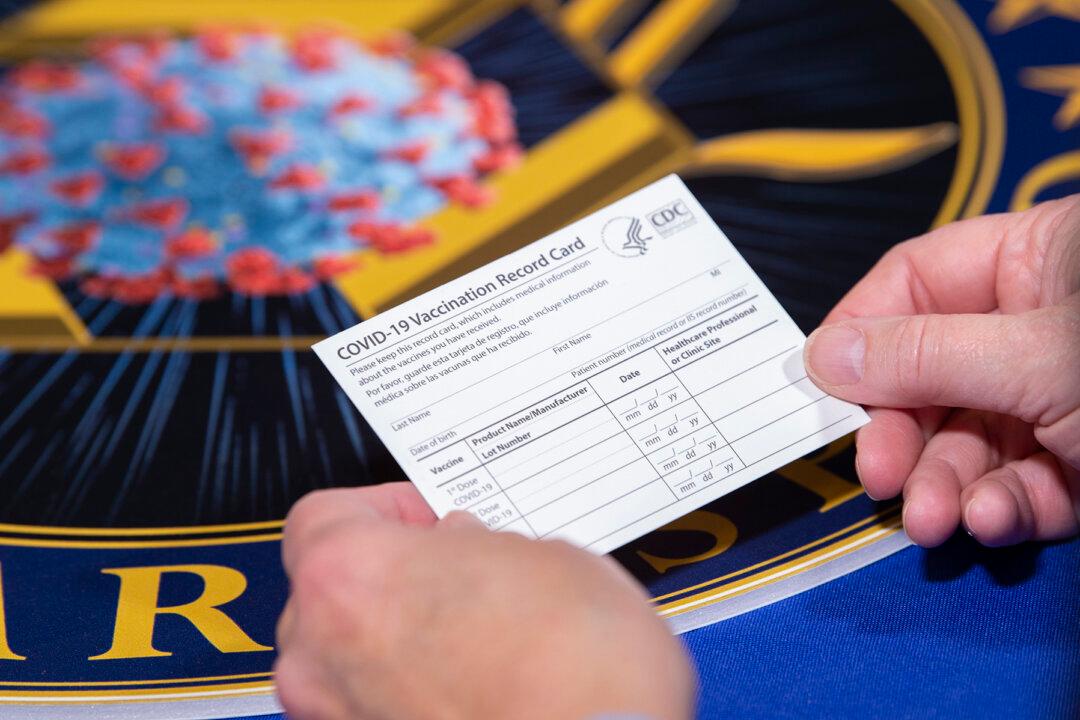Federal officials this week warned that it is “a crime” to falsify COVID-19 vaccination cards amid new restrictions handed down by several major cities.
“We are aware of some cases of fraud or counterfeit COVID-19 cards being advertised on social media sites and e-commerce platforms, while the practice is not widespread,” White House COVID-19 coordinator Jeff Zients said during a COVID-19 White House virtual briefing.





